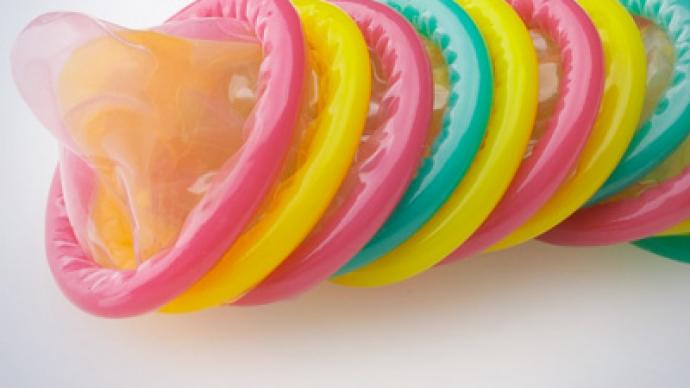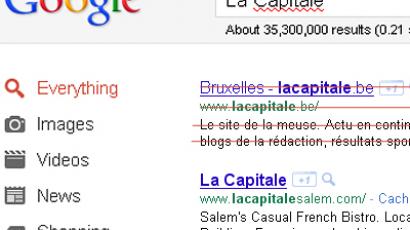Condoms become mandatory in Los Angeles

Sorry, shoppers. If you like your porn flick penises naked and insist that your adult films cancel any camera shots that capture condom-clad units, you are about to be in a whole mess of trouble.
Council members in Los Angeles say porn filmed in the city can only be permitted if the performers put on prophylactics. The ruling, courtesy of a Tuesday decision from the LA City Council, comes after AIDS activists and safety advocates pressured the city into tightening regulations within the adult film industry. Performers in California are already required to be regularly tested for sexual diseases and produce paperwork before each shoot. Citing an outrageous lack of concern for the public’s health, however, opponents said that that wasn’t enough and have now made their voices heard among the City Council.The decision was set to be one for the public to make, with a ballot measure scheduled to appear later this year on the same day as the California primary. Instead the City Council has nixed the notion of that question even going up for public debate and adopted the legislation from within.The ordinance, the City of Los Angeles Safer Sex In The Adult Film Industry Act, will require pornography produced in Los Angeles to only boast scenes in which the male performers are protected with a condom. Inarguably the area is the largest North American producer of porn. With this decision, massive changes are expected to affect not just the production and audience of the films. Others are worried that the backlash could create a tremendous blow to the state’s economy. Furthermore, some still are concerned that the regulations will drive porn outside of sanctioned production houses and will increase an underbelly of unrestricted sex acts caught on film and made and bought on the black market.A recent analysis of the porn industry by Forbes determined the adult film biz to bring in about$14 billion annually. Around 90 percent of pornography is estimated to come out of the Los Angeles area. Given that success, supporters of the mandate say that that reputation presents LA with an opportunity to capitalize on that impression. “For better or worse, the city of Los Angeles is nationally known as the capital of the adult film industry. We should be nationally known, also, as the home of a safe adult film industry,” Councilman Paul Koretz said Tuesday.The ruling, which will go before a second vote next week, came from a vote of 11-1. Councilman Mitch Englander with the only representative to cast a nay. “Public health falls under the jurisdiction of the County, not the City,” Englander offered in an official statement. “We are still waiting for a legal answer on the question of jurisdiction.”City Attorney Carmen Trutanich had previously threatened to file a lawsuit over the initiative, saying that it would trump the state of California’s say in the matter. The Los Angeles Daily News reports, however, that Tuesday’s decision to drop the measure from the ballot and instantly approve it came after Trutanich rescinded his threat. Trutanich apparently agreed to end the lawsuit as part of a compromise and says that both sides involved will try to adjust the legislation to fit both parties’ wants before the Act goes on the books. By dropping the measure off the ballot, the city expects to save substantially on associated voting day costs. For some, though, that compromise shouldn’t be one for lawmakers and lawyers to make.“I don't want anyone telling me how to have sex,” says porn performer Richard Mann, who releases videos on his own pornographic site RichardMannsWorld.com. “Next thing they will do is tell me who I can have sex with. Hell they might even tell me the time of day I can have sex,” he adds to RT.Under the legislation, filming permits will only be granted on condition that the production staff ensures that performers are condom-clad during film. The rule will apply only to shoots outside of official studios, however, which in the end will really not change how much of a blow it will really be to the industry. Films shot on location and outside of a studio are largely included within the realm of American pornography, and that provision could be considered only an attempt to appeal to skeptics while still without a doubt requiring a revamping of the way the biz works. Michael Weinstein, chief of AIDS Healthcare Foundation and a pusher for the provision, acknowledged to the LA Times that “A majority of filming for adult films is not done in studios." What is left then is a product that some say consumers won’t want to purchase, even if it is a move that has the studio putting the public’s health above the customers’ wants.“I’m not for people forcing us to wear condoms; [that’s] what the tests are for,” Richard Mann told RT when the vote was still set to go before the public. “People will not want to see people fuck with condoms. At least that’s what I think.”Indeed, other insiders share that sentiment and fear that new regulations will warrant a loss in sales. Fellow actors add to the argument that the current mandates are enough to make the industry safe. "There is no way to make the industry risk-free. Making things safer does not make it safe,” actor Jeremy Steele told a California courtroom during a 2011 hearing. “If you're worried or paranoid, you should not be in this industry,” he added."As someone who is still working on the camera myself, I don't feel any safer with condoms," actress Nina Hartley echoed at the same hearing in Los Angeles.To Mann, the move seems to be one driven by public misconception of how the industry works, a front that is further perpetuated by an misunderstood media and a public wrongly under the guise that an AIDS epidemic is on the forefront in LA.“They are doing the PC thing in that the media gets the public scared whenever they hear of someone catching HIV,” Mann tells RT. “The media always getting the facts twisted and tell half truth and half lies. So they are doing what they think the public would want them to do. If the public and them knew the facts they might vote the other way but I doubt it.”Mann adds that the council members that made the call might not have even been worried of any epidemic, too. “Politics has always been about not just power, but money as well,” says the performer.Outside of the industry, others support the provision. AHF President Michael Weinstein told the media that the decision comes as “a huge leap forward” after a “long struggle to move us to a place to make Los Angeles” safer. Others say that the entire move crosses a line that previously put the US government, to a degree, outside of the bedroom — or the porno shoot.“Government regulation of film making would likely undermine existing health and safety efforts and industry standards that are effective as well as take the government into dangerous new territory,” Diane Duke, executive director of the adult industry trade group known as the Free Speech Coalition, tells the LA Times Weekly. “This approach betrays our Constitution; it betrays the hard lessons we've learned in the 25-year fight against HIV/AIDS; and it betrays aggressive health and safety efforts in place that are proven and effective.”On Tuesday, activists with the AHF planned to protest an event in Santa Monica, California where porn mogul Larry Flynt was expected to be awarded by industry insiders as an “icon.” Opponents, however, say that Flynt, publisher and founder of Hustler magazine, has “complete disregard for his adult film performers’ safety in his pursuit of profits and his repeated and public defiance about following California worker health and safety laws.”In the past, California’s Division of Occupational Safety and Health, or Cal/OSHA, fined Flynt for skipping condoms on the set. Though no state regulations specifically say prophylactics must be warn, OSHA fined Flynt for failing to provide physical protection to blood borne pathogens and having an illness prevention program in play for his employees. OSHA demands that state-sanctioned workplaces keep employees safe and have filed around 30 citations between 2004 and 2010 for rule-bending pornos. The state as a whole has largely been unable to afford to focus its attention on regulating the massive industry, though. "The reality is they don't have enough personnel to stop people from dying of dehydration in the San Juaqin Valley," attorney Jeffrey J. Douglas of the Free Speech Coalitions told the LA Weekly in 2010. "They don't have a prayer of enforcing this against the industry."Douglas added that the LA district attorney tried to crack down on pornography during the 1980s, but the move did just as many predict would come from the new condom act: pornography moved underground. Overnight, said Douglas, "workplace quality went into the toilet."Two decades later, however, the local LAPD now has the go-ahead to once again enforce the laws, making crack-downs something much more likely and guaranteed to booster LA’s economy.Whether or not it will make up for the porn studios forced to throw in the towel is something for time to tell.














